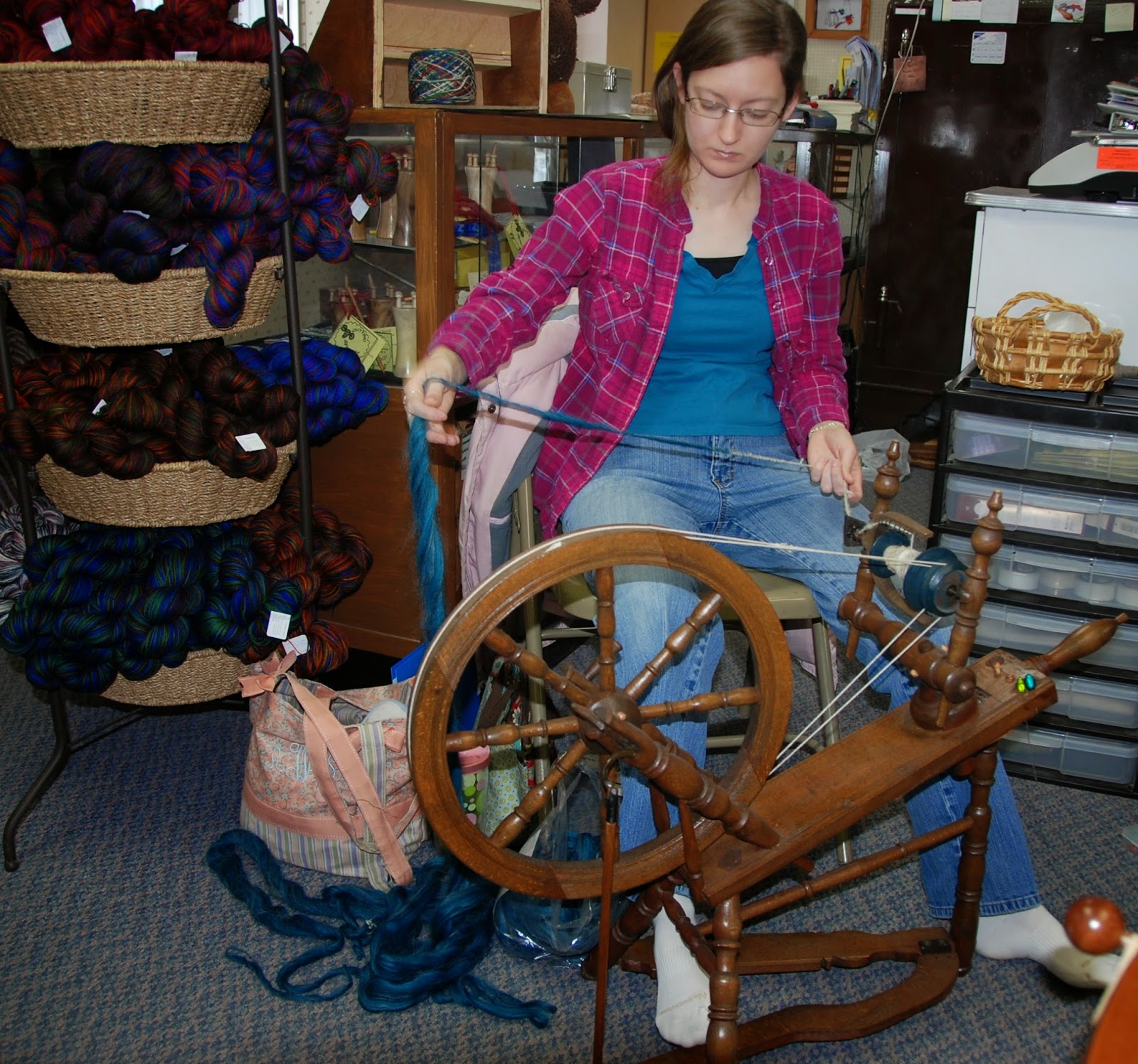Peggy Jo Wells (Brown) was given this wheel as a Christmas gift from her parents, Janet and Harlan Brown. Harlan took a liking to spinning with the wheel, and before long was inspired to begin the wool spinning mill we now know as Brown Sheep Company.
This weekend's class was taught by Katrina Tylee, who is our local farmer's market director and a former airplane mechanic. Kat described spinning as similar to patting your head while rubbing your belly--this was a very accurate description. Spinning on a wheel requires treadling, or pedaling with your foot to keep the wheel spinning, while simultaneously feeding roving fibers into the wheel.
Each of us taking the class had brought a different kind of spinning wheel. It was fascinating to watch each person learn to use their wheel.
This wheel, called a charkha, is especially unique. The charkha is one of the oldest styles of spinning wheels, originating India. It is intended mainly for spinning with cotton and was made famous by Gandhi, who spun on a charkha and saw it as a symbol of self-sufficiency and independence.
Shawntae's wheel was made for spinning flax. She found this wheel at an antique shop and refinished it. Since this week was made for very small fibers, Shawntae's wheel was extra challenging but she was spinning impressively well by the end of the day.
When I was a kid, my greatest dream was to be Laura Ingalls of Little House on the Prairie. Spinning on a wheel was greatly fulfilling to that eleven-year-old part of my self. There's just something very satisfying about creating something useful with your hands. Even if it looks like this:
 |
| I know this only slightly resembles yarn, but I spun it! |
If you are already in to some kind of fiber arts, but haven't tried spinning, I would highly recommend it. Spinning will give you a true appreciation for what it means to make clothing "from scratch." We knitters are pretty spoiled to have yarn that's already been spun and dyed at our fingertips. Just imagine how much work it took to produce clothing when everything was done by hand.






No comments:
Post a Comment